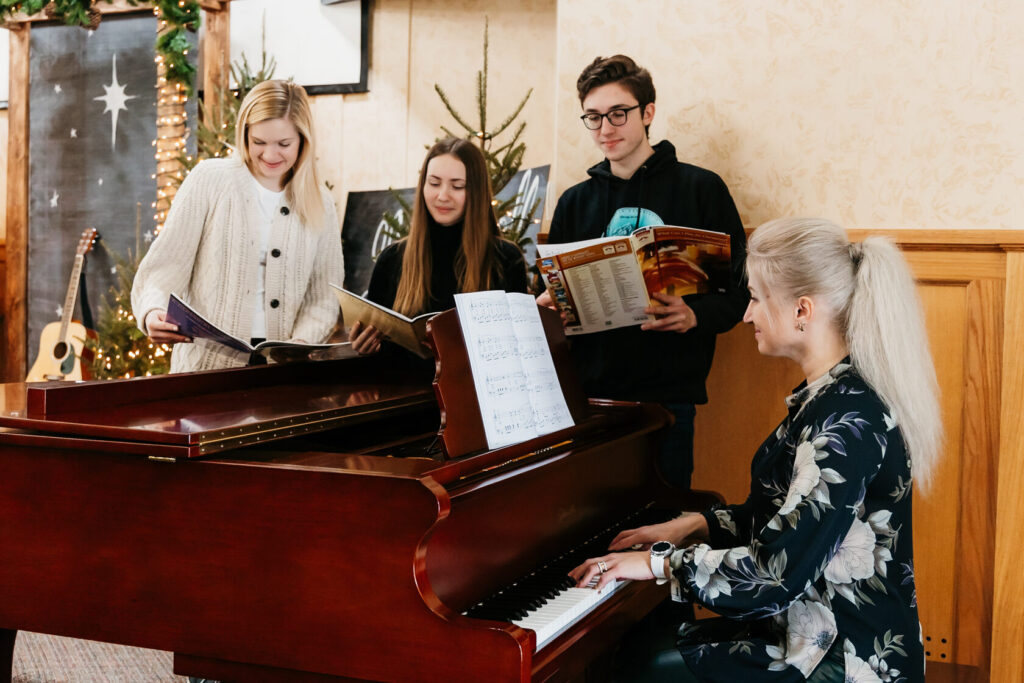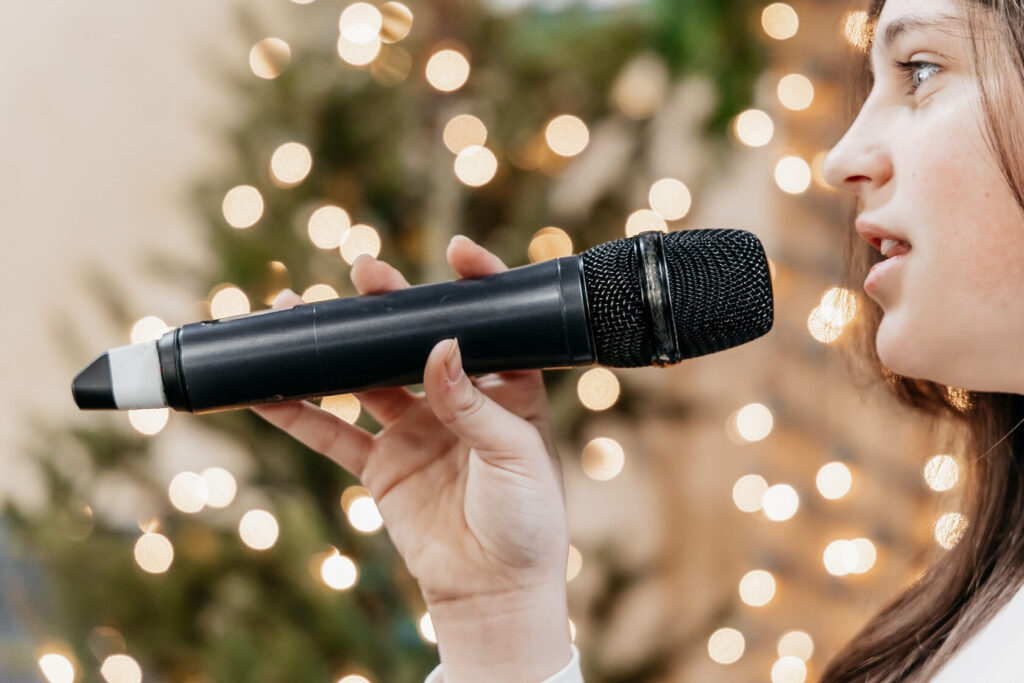We teach kids and adults as well. We have an experience for both audiences
Our lessons could be 30, 45 or 60 minutes length, depends of your level and goals
We provide private and group lessons, and you can contact our manager to help you decide which is more convenient for you


For Kids
For adults
We believe that showcase events are a great boost for our students to reveal their performing abilities to the fullest and, at the same time, the perfect opportunity to make a step towards a professional musical career. That is why Talent’s School puts a lot effort into the organization of concerts and performances of any kind.
The human vocal apparatus is similar to bagpipes. There is a bag – the lungs, from where the sound travels and there is a tube – the throat and vocal cords. Additionally, so-called resonators help to individualize the sound of one’s voice. When the voice is correctly fixed, the whole system operates in the optimal mode. The lugs pump the air, vocal cords provide the appropriate tone, and the resonator cultivates the baritone, and the articulatory apparatus further enriches the sound with overtones and allows signing. At this point, an individual is truly singing, not just making noise. Singing is done with various vowels, interrupting them with constants. The end result is not only a structured sound but a song – melody with words.
Completely the opposite appears when the voice is set incorrectly. Vocal cords are then unnecessarily overextended and produce a false sound.
The instructor’s task is to precisely correct and adjusts the voice apparatus. Setting the voice is achieved by carefully completing various exercises and training.
A literate teacher obligates in discovering individual strengths in each student.